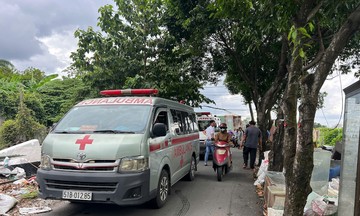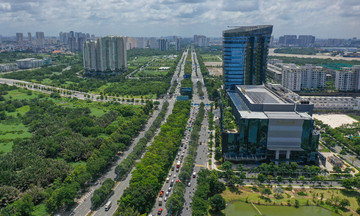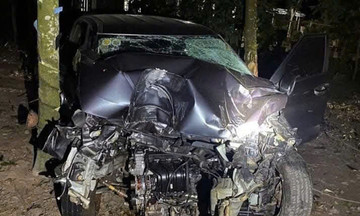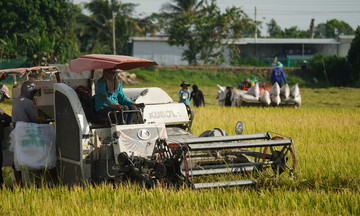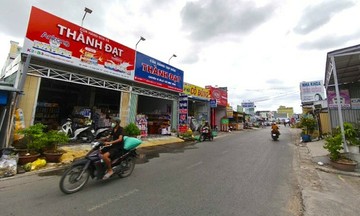Amidst the rice paddies of Binh Minh commune, formerly in Yen Thanh district, lies Tran Quy Bao's 3.5-hectare snail farm. The 45-year-old's farm boasts dozens of ponds bordered by lush vegetation. Seven years ago, this area was a desolate swamp, and Bao's family was deeply in debt.
Bao had a difficult youth, working various jobs to make ends meet. He and his wife, Phan Thi Loi, spent 10 years selling bamboo traps for catching eels. As wild eels became scarce and families turned to eel farming, Bao and Loi tried running a cafe and karaoke business but failed.
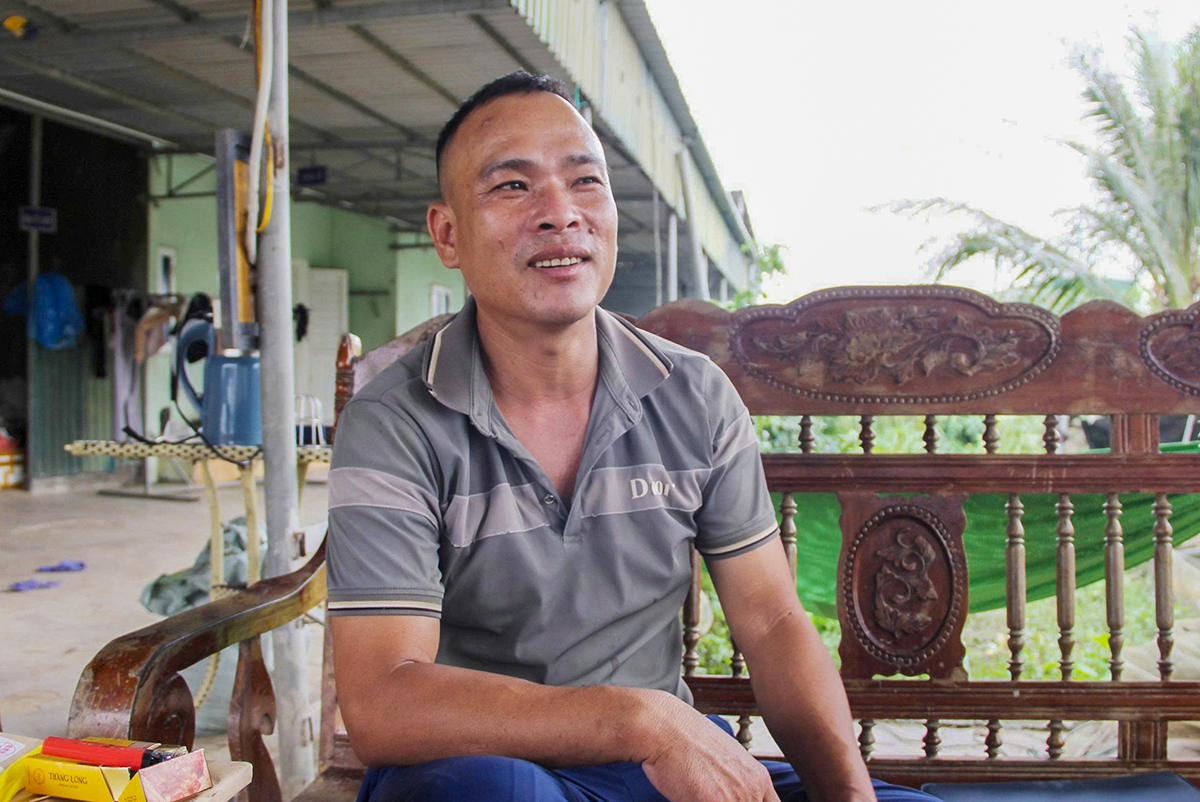 |
Tran Quy Bao recounts the hardships of starting his snail farm. Photo: Duc Hung |
Tran Quy Bao recounts the hardships of starting his snail farm. Photo: Duc Hung
In 2018, Bao borrowed money and invested all his savings in a stone quarry project in Laos with a contractor. A few months in, he discovered that local authorities had banned stone exports, leaving his inventory stranded.
"At that time, my mother had a stroke, my father passed away from lung cancer, and my youngest son was constantly hospitalized. Jobless, broke, and 1.5 billion VND in debt, my family faced unprecedented hardship," Bao recalled.
While Bao searched for solutions, Loi considered moving the family south to find work. Bao advised against it, arguing that wages wouldn't cover living expenses, let alone repay their debt. With a solid house and a one-hectare swamp inherited from his parents, Bao planned to raise fish and livestock while selling the house to repay some of the debt.
"After selling the house, I planned to build a small hut. The remaining money would be used to renovate the pond and purchase feed for a mixed farming model," Bao recalled his plan from late 2018.
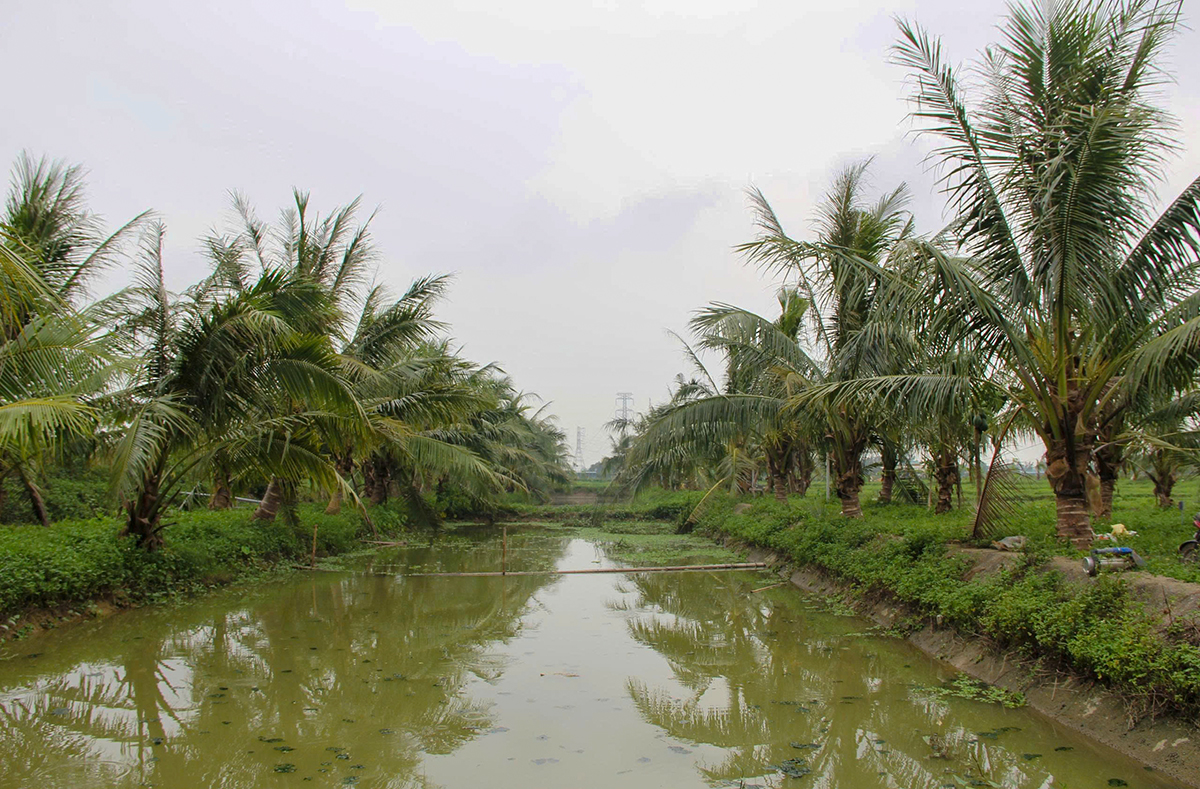 |
Bao's snail farm in Binh Minh commune. Photo: Duc Hung |
Bao's snail farm in Binh Minh commune. Photo: Duc Hung
Around the same time, Bao's aunt, a trader of local specialties like snails, frogs, and eels, told him about villagers earning 50–70 million VND annually from extensive snail farming. Intrigued, Bao researched online and discovered a successful snail farm in Tuyen Quang province. He borrowed 12 million VND, traveled north for training, and purchased 20,000 snails to test on a 500 m2 pond.
Following the training, Bao fed the snails vegetables, tubers, fruits, sweet potato leaves, and cassava leaves. He maintained a water depth of 50–100 cm, planted taro and water hyacinth for the snails to cling to, and changed the water weekly. After 4 months, he harvested 4 tons of snails, earning 280 million VND. "Receiving our first profit, my wife and I cried. After repaying some debt, I reinvested the rest to buy more snails," he said.
Loi shared that initially, their family was unaware of their snail farming venture. The couple worked tirelessly, building embankments, planting grass and water hyacinth, and checking for snail eggs every night. "Start small, expand after succeeding," Loi often reminded Bao, emphasizing the importance of learning from past failures, as their capital was borrowed, and any mistake could ruin them.
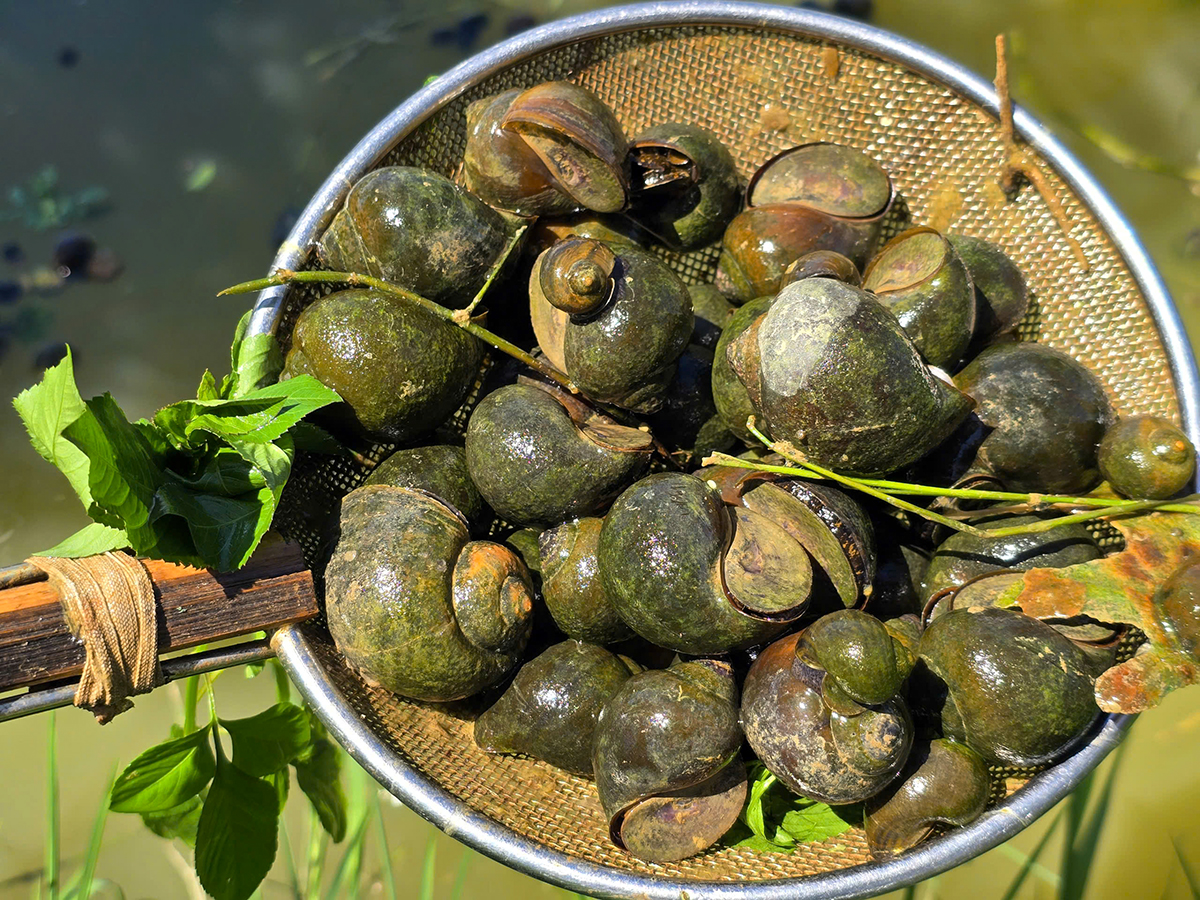 |
Commercial snails at Bao's farm. Photo: Duc Hung |
Commercial snails at Bao's farm. Photo: Duc Hung
In 2020, Bao expanded beyond his parents' one-hectare pond, leasing additional land to create 17 ponds, each 500 m2 for easier management. With a 150 million VND loan from the Nghe An Farmers Association and 20 million VND in support from the Agricultural Extension Center, Bao further invested in his farm. That year, two snail ponds flourished, yielding 2.5 million snails and generating one billion VND in revenue, with a profit of around 700 million VND.
This substantial profit helped the couple reduce their debt. However, their joy was short-lived as disease struck the following year. Snails died en masse from proboscis swelling and intestinal infections, with no effective treatment available. In 2021, the farm suffered over half a billion VND in losses, wiping out their accumulated savings.
"Seeing snail shells floating on the water's surface, I considered giving it one more year. If we couldn't solve the problem, we would abandon snail farming and return to rice cultivation," Loi recounted. But Bao persevered, experimenting with dozens of aquatic medicines. After six months of setbacks, he finally developed a formula to combat proboscis swelling and bacterial infections. In 2022, thanks to this effective treatment, the farm salvaged 6 tons of snails, earning 420 million VND from commercial snails and 700 million VND from snail breeding.
Bao explained that snail farming requires adherence to natural principles. Ponds should be designed with a deep center and shallow edges, with lush banks for snails to shelter and lay eggs. Feed includes readily available cassava leaves, sweet potato leaves, papaya, daisies, and green jackfruit grown on the banks. "All the feed is chopped and thrown into the pond. This ensures the snails' meat retains the flavor of wild snails, thanks to the all-natural diet," he explained.
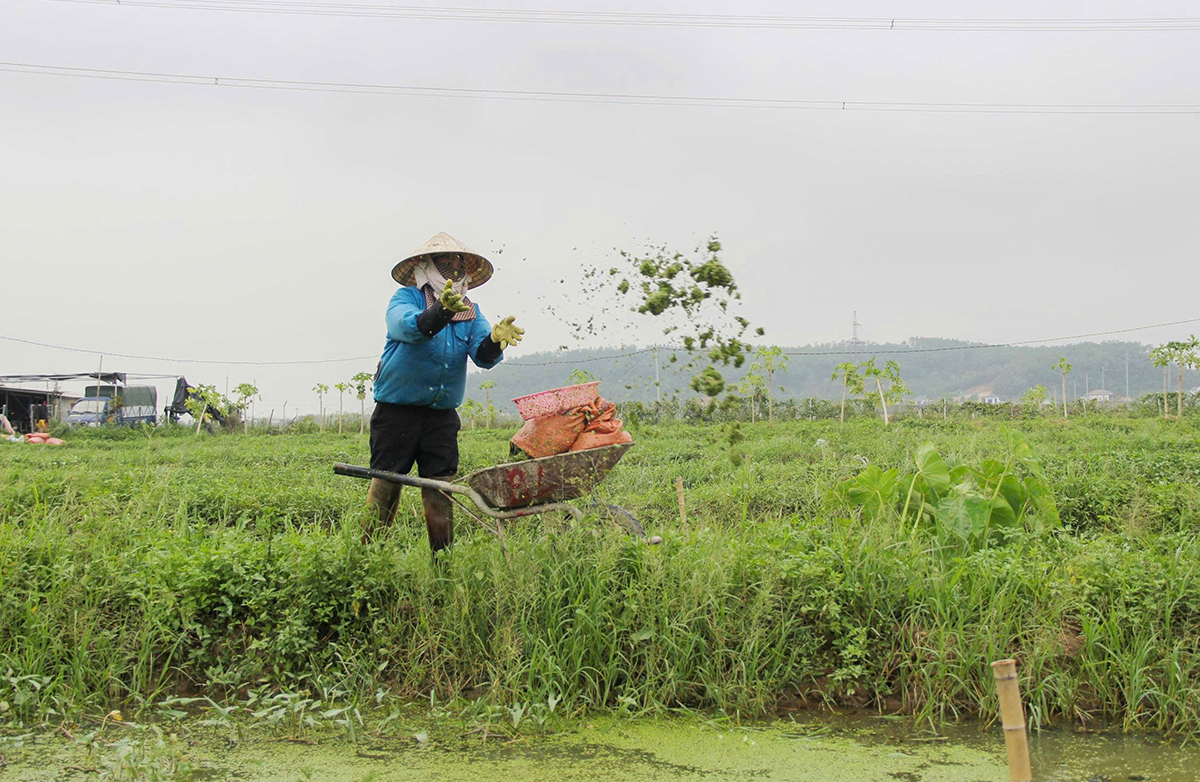 |
Workers at the farm. Photo: Duc Hung |
Workers at the farm. Photo: Duc Hung
Snail prices range from 55,000–65,000 VND per kg, with 40–50 snails per kg. Today, Bao owns 80 snail ponds across 3.5 hectares, producing around 65 tons of commercial snails and 4 million breeding snails annually. His revenue reaches 6–8 billion VND, with a profit exceeding three billion VND. His commercial snails received the OCOP three-star certification in 2020. Having repaid his debts, his once-threatened house is now a comfortable family home. He has also purchased a car and a truck for transporting goods.
Bao's farm now employs 6–8 local workers, each earning nearly 8 million VND monthly. The couple also shares their snail farming expertise with other villagers to help them escape poverty.
Vu Trong Quang, Chairman of Binh Minh Commune Farmers Association, praised Bao's courage and ability to turn adversity into opportunity. "From being burdened with debt, he chose snail farming—a profession few dared to pursue at the time—and persistently expanded. His current success is a well-deserved reward," Quang stated.
Binh Minh commune now has 30 households farming snails on over 22 hectares of formerly abandoned swampland. Many households earn from hundreds of millions to several billion VND annually. The local government plans to expand the area to 50 hectares, establish a cooperative, invest in further processing, and develop a sustainable "Binh Minh black snail" brand.
Duc Hung



